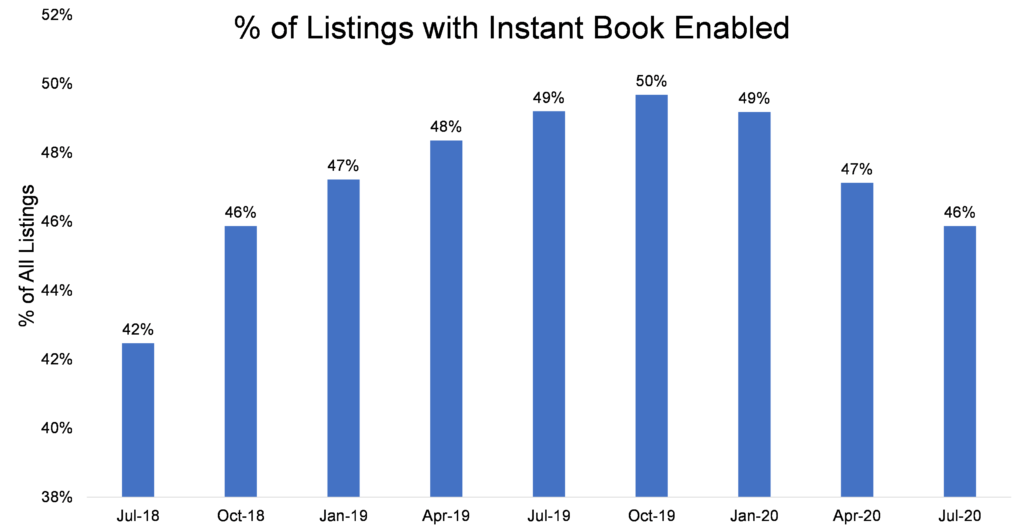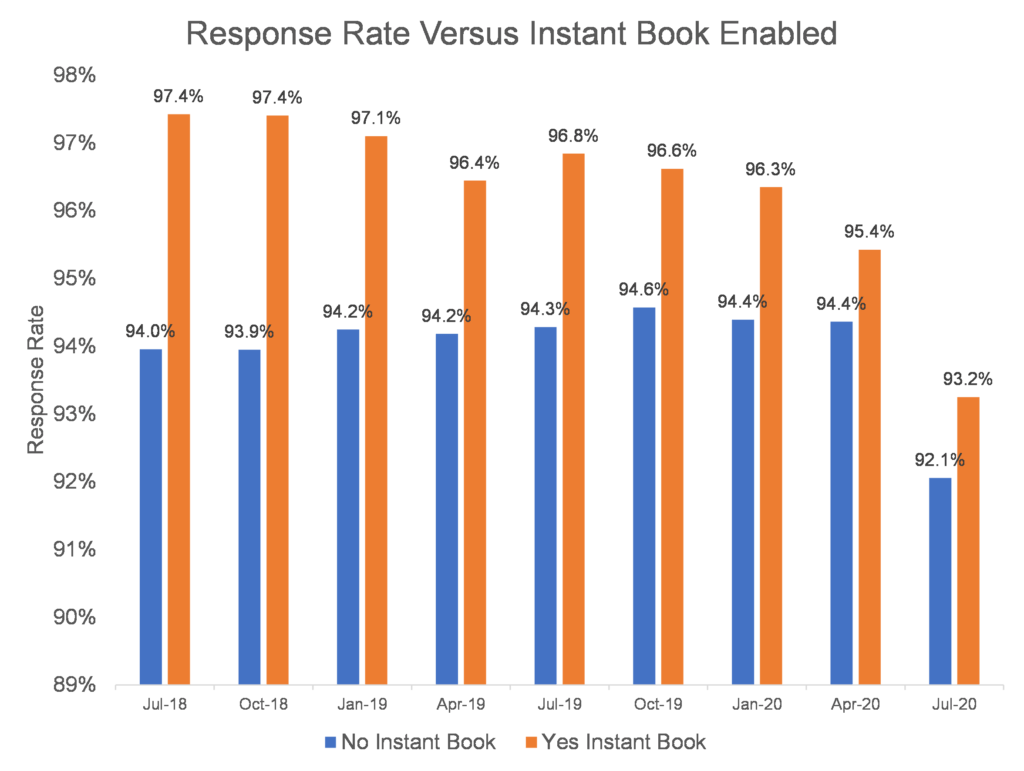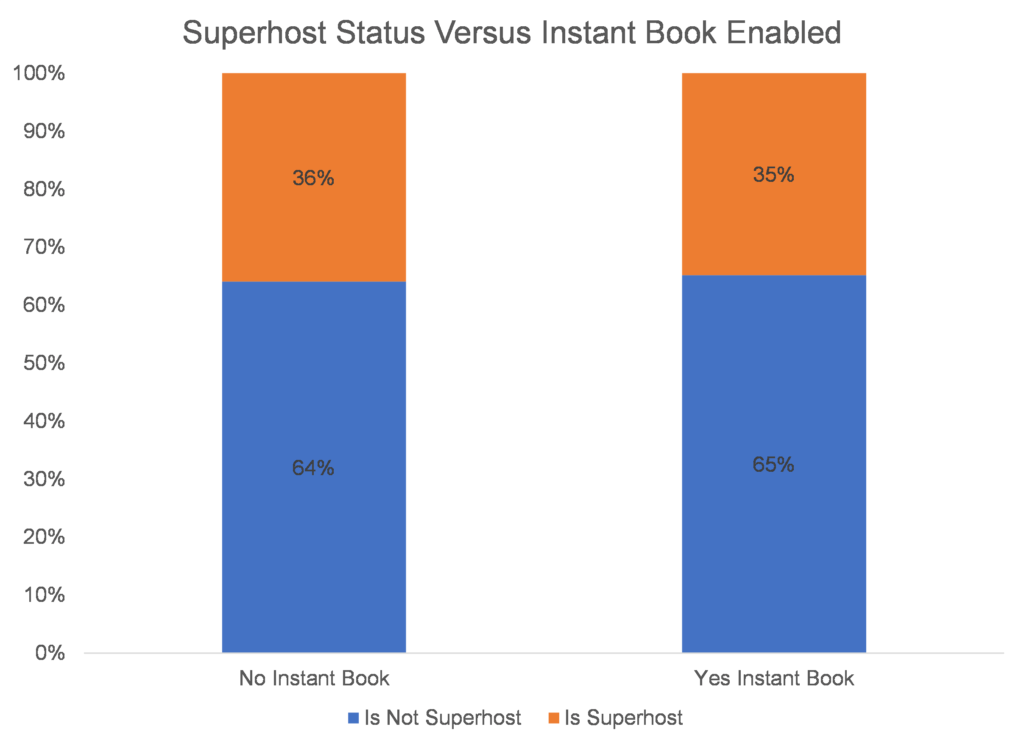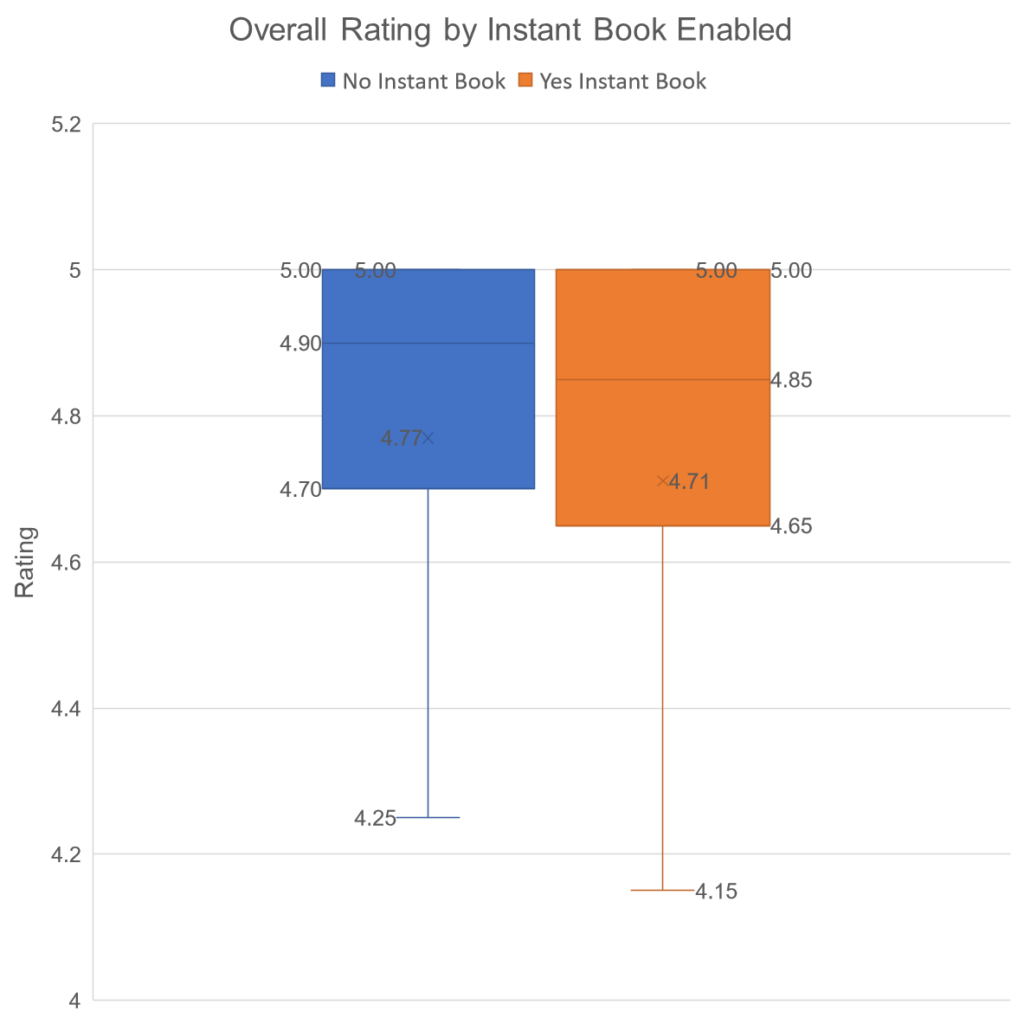What is Instant Book
Instant Book is a feature on Airbnb that allows hosts to accept booking requests without approval. This feature benefits Airbnb as it gives guests a more seamless experience. Instead of waiting for a host to accept a request, guests are automatically approved. To make Instant Book more appealing for hosts, Airbnb identifies several benefits:
- Penalty-free cancellation: hosts can cancel penalty-free at any time before or during the stay with a guest who booked using Instant Book. Hosts are however limited to three such cancellations in one year.
- Guest screening: hosts can set criteria to ensure only high-quality guests are able to book using Instant Book. These criteria include requiring a government issue ID and being recommended by other hosts.
- Search result boost: enabling Instant Book will improve a listings placement in search results on the Airbnb platform.
- Increased earnings: Airbnb states that because guests prefer listings with Instant Book enabled, those listings tend to earn mores. However, it’s hard to say if this is true, or if higher earnings are the result of better search placement.
Introduction to the analysis
For this analysis, we’ll use a US listing data from July 2018 to July 2020. Data was sourced from Inside Airbnb, an activist project with the objective to provide data that quantifies the impact of short-term rentals on housing and residential communities.
We’ll first look at how many hosts have Instant Book enabled and how this has changed over time. Next, we’ll compare listings with and without Instant Book against response rate and Superhost status. Finally we’ll look at how listings with and without Instant Book compare in terms of reviews. Because we want to look at some of these data points over time, we’ll use snapshots of the US subset of data every three months starting from July 2018 through July 2020 as necessary.
How many hosts use Instant Book
From July 2018 through October 2019 the percentage of listings with Instant Book was increasing. It rose from 42% in July 2018 to 50% in October 2019. It has since fallen back to 46% as of July 2020. One reason for this could be due to the COVID-19 global pandemic. The uncertainty around the whole situation may have turned some hosts off enabling Instant Book for now.

What is response rate and how is it calculated
Hosts are measured on how long they take to respond to guests. Hosts are required to respond to guests within 24 hours of being contacted. Failing to do so counts against their response rate. Response rate is calculated as responses delivered within 24 hours over total inquiries and requests received over the previous 30 days. Note that there is a different response rate calculation that is used to calculate Superhost status that uses the prior 365 days.
Does Instant Book improve response rate
Because Instant Book reservations don’t require approval from hosts, they automatically count as a response within 24 hours. These bookings therefore have a positive impact on response rate. Airbnb claims that Instant Book has a positive effect on your response rate. This is undoubtedly true, but how does it compare to other hosts who don’t use Instant Book?
Because response rate is calculated using previous 30 days, we’ll look at response rate over time of listings with and without Instant Book to strengthen our findings. The following shows average response rate of listings with and without Instant Book, every three months from July 2018 to July 2020.

Here we can see that listings using Instant Book consistently have higher response rates on average than listings that don’t. However, the difference is perhaps not as significant as one might think. The average response rate of listings with Instant Book is only 1 – 3% higher on average than listings that don’t. This tells us that hosts not using Instant Book are generally good at responding. It also tells us that, in so far as response rate impacts search ranking on the platform, having Instant Book may not help much with that factor.
Does Instant Book help hosts reach Superhost status
In an older article, Airbnb claimed that enabling Instant Book would help hosts achieve Superhost status, which requires hosts to maintain a response rate of 90%. We saw above that Instant Book only contributed to slightly higher response rates on average compared to listings without Instant Book. Since Instant Book does not significantly improve response rate, it’s not accurate to say it helps hosts achieve Superhost status. Rather, it would be more accurate to say Instant Book helps hosts achieve Superhost status more easily (by requiring less interactions from hosts to maintain the minimum response rate).

The graph above compares listings with and without Instant Book to Superhost status. We can see that of listings with Instant Book, 35% are Superhosts and 65% are not. Conversely, of listings without Instant Book, 36% are Superhosts and 64% are not.
This tells us that Instant Book, and by extension response rate is not a great predictor of Superhost status. This makes sense as maintaining the minimum response rate is one of the more achievable criteria of attaining superhost status.
How does Instant Book affect reviews
Finally, we’ll look at how Instant Book impacts reviews. Many hosts complain that one of the biggest drawbacks of using Instant Book is that because guests can book so easily, many do not fully read their listing. This can lead to guests not having appropriate expectations, which leads to the guest leaving a bad review.
Bad reviews resulting from guests not reading a listing, rather than anything the host has done, turns many hosts off Instant Book. We can validate this by comparing the distribution of ratings of listings with and without Instant Book. The box plot below shows this. The x represents the average. The line through the box represents the median. The edges of the box represent the first and third quartile of the distribution.

The average overall rating for a listing with Instant Book is 4.71 compared to 4.77 without. This seemingly small difference is significant considering the small range of ratings that exist to begin with. We can conclude in general, listings with Instant Book on average have lower ratings than those without it.
Key Takeaways
- It is in Airbnb’s best interest for hosts to enable Instant Book.
- For this reason, they offer valid benefits to do so including penalty-free cancellations, guest screening and a boost in search results.
- Enabling Instant Book can lead to bad reviews if guests don’t fully read the listing.

